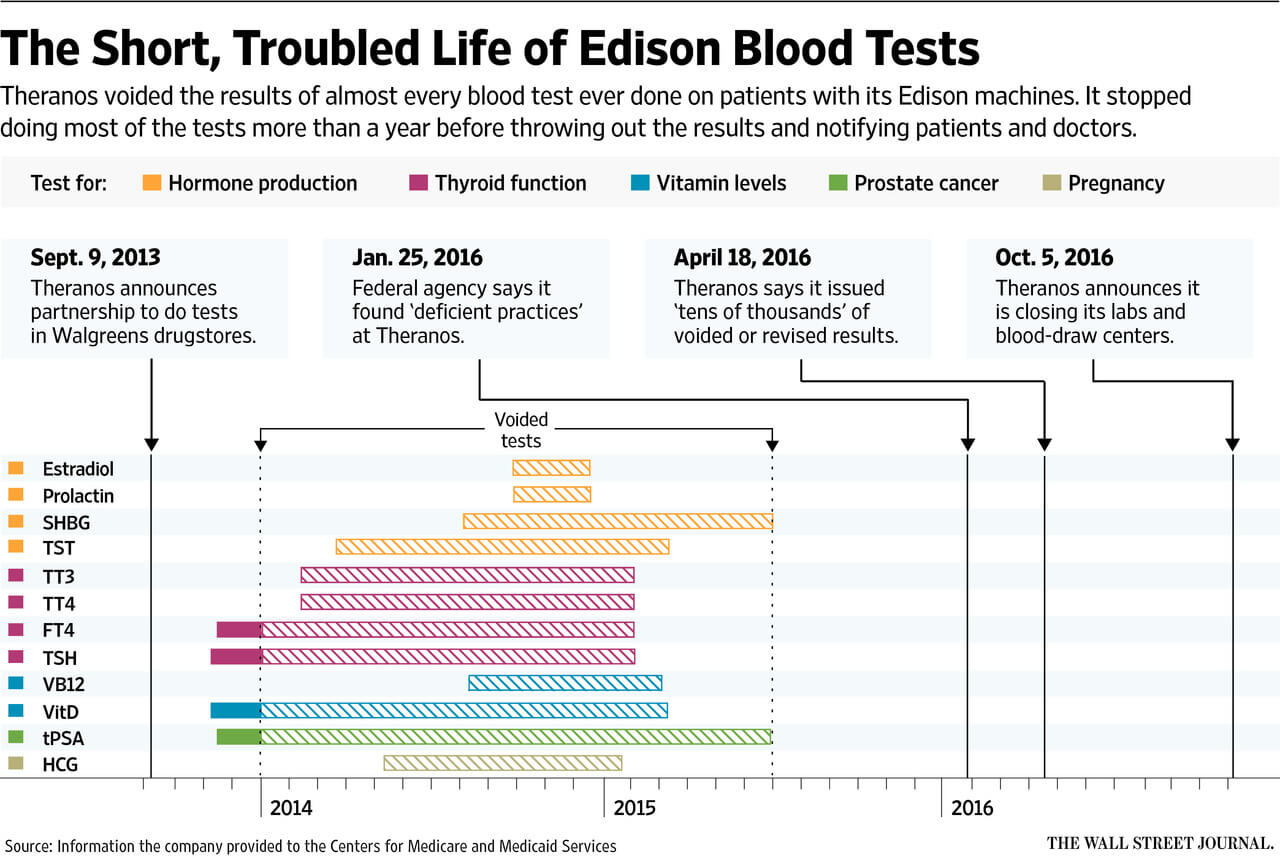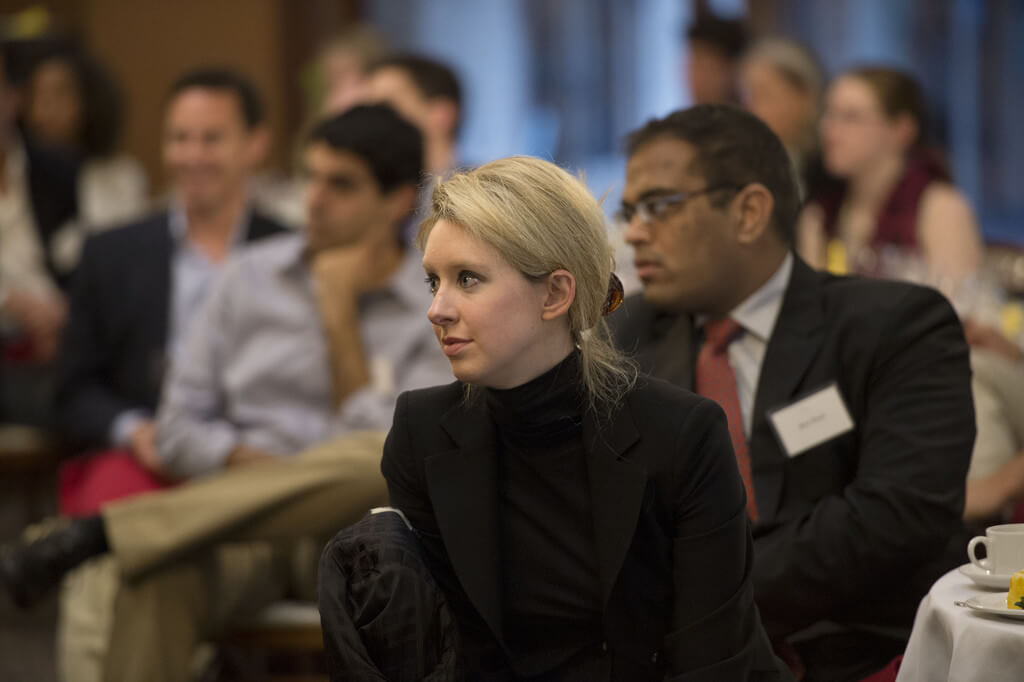The story of blood-testing company Theranos was one of the biggest scandals to hit the tech and health care industry in decades. Now, years after the SEC started looking into the startup, the agency has charged founder Elizabeth Holmes and former president Ramesh "Sunny" Balwani with massive fraud.
According to the SEC, the pair raised over $700 million from investors on the back of "false statements about the company's technology, business, and financial performance."
Theranos claimed its portable analyzer could conduct a huge number of blood tests using just a few drops of blood. The SEC writes that in reality, the machine could complete only a tiny percentage of these tests, while the vast majority were carried out on "modified and industry-standard commercial analyzers manufactured by others."
Holmes and Balwani also falsely claimed that their company's products were deployed by the U.S. Department of Defense on the battlefield in Afghanistan and on medevac helicopters. Furthermore, they added that Theranos would generate more than $100 million in revenue in 2014. The truth is that its technology was never deployed in Afghanistan and it generated just over $100,000 in revenue that year.

Image credit: WSJ
Theranos and Holmes have agreed to resolve the charges against them, though neither has admitted nor denied the charges. In addition to paying a $500,000 penalty, Holmes has been barred from serving as an officer or director of a public company for ten years. She must also return her 18.9 million remaining shares she obtained during the fraud and give up majority voting control of Theranos. Should the firm be acquired or liquidated, she won't profit until more than $750 million is returned to defrauded investors and preferred shareholders.
Through investors such as Rupert Murdoch and board members that included Henry Kissinger, Theranos reached a $9 billion valuation, leading to Holmes being dubbed "the next Steve Jobs." But a series of reports from the Wall Street Journal in late 2015 marked the beginning of the end for Theranos, which closed its labs and Wellness Centers and terminated half its workforce in October 2016.
